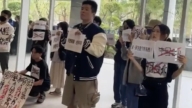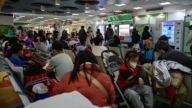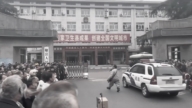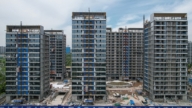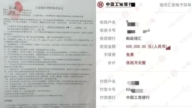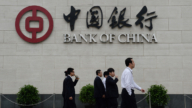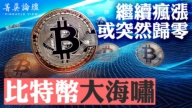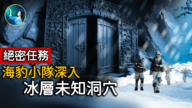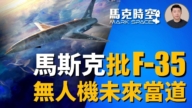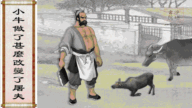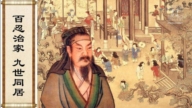【新唐人2011年12月1日訊】被譽為「中國經濟學界良心」的著名經濟學家吳敬璉近日發表演講,敦促「下屆政府要以改革的姿態高調亮相」。他警告,中國市場經濟出現倒退,當局通過貨幣政策調整爭取喘息的時間,以免爆發嚴重的通貨膨脹和「硬著陸」,但是,轉變經濟增長方式不能只是口號掛在嘴上。
11月28號,在第14屆「孫冶方經濟科學獎頒獎大會暨經濟發展方式轉變與體制改革」高峰論壇上,吳敬璉指出,在過去相當長時期,中國經濟增長是靠資源來拉動的。
他表示,現在中國宏觀經濟陷入了兩難困境:如果繼續鬆下去,資產泡沫就會到達臨界點,房地產就可能崩盤,通脹可能向惡性的方向發展,所以,必須緊;但是,過去的增長是靠錢堆起來的,如果緊了以後,增長的勢頭也就失去了。
吳敬璉現任國務院發展研究中心學術委員會副主任、研究員、全國政協經濟委員會副主任、《改革》雜誌主編。
吳敬璉在演講中提出了轉變經濟增長方式的五個方面。
不過,「紐約城市大學」經濟學教授陳志飛,對中共體制下能否實現經濟轉型,表示質疑。
陳志飛:「我覺得吳先生他一貫對中國經濟市場化是頗有見地,獲得人們的尊重。從80年代末,他就跟隨趙紫陽搞價格闖關,當時引起了業內人士的矚目和尊敬。但是,通過六四以後這20多年,雖然在中國市場化的過程中他有很多的論述,我覺得只是他的一廂情願。」
目前,有「世界加工廠」之稱的中國沿海地區,由於企業成本提高,加上世界經濟衰退,產品出口歐美市場越來越困難,許多企業面臨困境,削減薪水、裁員等情況日益增多,引發新一波工人抗議示威風潮。
吳敬璉表示,中國能夠成功應對亞洲金融危機,最關鍵的原因是中小企業的崛起。而今中小企業卻出現了倒閉潮。他說,現在有改革回潮的跡象,出現了「國進民退」的大倒退。不改革國有經濟、中國經濟的整體效率難以得到提升,而且加速腐敗和貧富兩極分化。
他指出,國有企業不但在石油、電信、鐵路、金融等關鍵領域處於壟斷地位,而且得到國有銀行的大量貸款迅速擴張;其次,各級政府在配置土地和資本等重要資源上,擁有巨大的權力;第三,各級政府通過投資項目審批、市場准入、價格管制等手段直接干預企業的微觀經營活動。
北京天則經濟研究所理事長茅于軾對此發表看法。
茅于軾:「在改革的前十幾、二十年,由全面的計劃經濟變了市場經濟,很多國有企業都賣掉了,民營企業有很大的發展,市場配置資源的功能越來越強。但是最近十年,這方面沒有甚麼進展,甚至於有些倒退,國營企業是共產黨的利益所在。」
吳敬璉在演講中說,胡錦濤不久前在APEC峰會上表示,要減少政府對微觀經濟的干預。溫家寶也有類似表述。吳敬璉強調,政府介入微觀經濟活動是極大的危險。
他指出,要實現經濟轉型,關鍵在於切切實實推進市場化改革,以及與此相關的政治改革和社會改革,改革的目地就是要消除轉變發展方式的制度性障礙。
陳志飛:「政治改革實際上是一直被擱置,而且中共在政治統治手腕上更加強硬,人權記錄上更加惡化。隨著『國進民退』現象的發生、中國經濟體制發生的變化,政治改革不但沒有向前進,反而也出現了類似『國進民退』的現象,也出現了類似的倒退的現象。」
面對中國政治、經濟和社會重重危機,吳敬璉說:「現在需要搞清楚的是,我們到底是需要一個有利於大多數人的市場經濟,還是要一個由政府壟斷的國家資本主義。」
新唐人記者易如、李元翰、孫寧採訪報導。
What Does China Need? Market Economy or State Capitalism?
Known as “the conscience of China’s economic sector*",
Wu Jinglian, a renowned economist, in his recent speech,
urged the Chinese Communist Party (CCP) authorities’
“next administration to highly promote reformation."
Wu warned that China’s market-oriented economy
encountered setbacks, and the authorities should adopt
proper money policy to gain breathing time, avoiding an
outbreak of severe inflation and a hard landing.
Wu believes that the transformation of economic
growth should just not be a slogan.
On 28th November, at the summit forum during the award
presentation ceremony for the Sun Yefang Prize in
Economic Science & Transformation of Economic
Development and Economic System Reform, Wu Jinglian
pointed out that in a rather long period of time, China’s
economic growth was resource driven.
Wu said that China’s macro economy was caught in a dilemma.
If it continued to adopt easy monetary policy, the asset bubble
would reach tipping point, triggering a collapse in real estate.
Inflation would likely increase in a vicious trend.
So, the authorities should tighten monetary policy.
However, the economic growth in the past was propped up
by money, a tight policy would mean that
the growth momentum would be lost.
Wu Jinglian, is currently deputy director, research fellow of the
academic committee at the CCP State Council Development
Research Center, deputy director of the economic committee of
CCP’s Chinese People’s Political Consultative Conference and chief editor of Reform magazine.
In his speech, Wu Jinglian proposed five areas related to
the transformation of economic growth.
However, economics professor, Chen Zhifei, at the City
University of New York, questions whether the CCP can really achieve its proposed economic transformation.
Chen Zhifei: " Mr. Wu has always had insights on issues of
China’s market economy and has gained people’s respect.
Since the late 1980s, he followed the then CCP Premier,
Zhao Ziyang, to carry out pricing reform, drawing the industry insiders’ attention and respect.
But since the 4th June incident in 1989, for over 20 years,
though he has given lots of views on China’s markets,
I believe that’d be just his own wishful thinking."
Currently, China’s coastal areas, named as the world’s
factories, confront difficulties in exporting due to increasing business costs, and global economic recession.
More and more enterprises in this plight have to make
salary cuts, layoffs and the like, while triggering another wave of worker protests.
Wu Jinglian stated that China’s successful coping with
the Asian financial crisis mainly depended on
the rising of small and medium enterprises, which presently
were caught up in the tidal wave of business failure.
Wu pointed out that the fact of state-owned sector’s expanding
and private sector’s shrinking , was a major reform setback.
Without implementing reform on the state-owned economy,
the overall efficiency of China’s economy would be hard to improve upon,
and would accelerate corruption and wealth polarization.
that state-owned enterprises not only monopolized
in oil, telecommunications, railways, finance and other key areas,
but also rapidly expanded with backups from
state-owned banks’ massive loans.
Secondly, CCP authorities at all levels owned enormous power
to allocate land, capital and other important resources;
Thirdly, CCP authorities at all levels directly intervened in
enterprises’ micro business operations by means of approval for invested projects,
application of market access permits and
pricing control systems, etc.
Beijing-based Unirule Institute of Economics president,
Mao Yushi, comments,
Mao Yushi: “In the first ten years or twenty years,
a comprehensive planned economy became market-oriented.
Lots of state-owned enterprises were sold out,
private enterprises took a great leap, and the market-based resources allocation played its role better.
But in the last ten years we witnessed little progress in this
aspect, with regression arising in some cases.
The state-owned enterprise is the focus of CCP’s interest.”
In his speech, Wu Jinglian quoted CCP president Hu Jintao’s
remarks at the APEC summit as saying that
the government’s intervention in the micro-economic activities
would be reduced.
CCP Premier Wen Jiabao has also expressed similar things.
Wu stressed that it would be a huge danger if the government
Intervened in micro-economic activities.
Wu believed that the core of achieving systematic economic
reform lies in the down-to-earth promotion of market-oriented reforms,
as well as the associated reforms on political and the
social system.
The goal of reform should be the elimination of
institutional barriers to the change of development patterns.
Chen Zhifei: “The political reform has long been shelved in fact,
and the CCP has further tightened its political control.
The condition of human rights in China is getting worse.
Along with the occurrence of state-owned sector’s expanding
and private sector’s shrinking, plus economic system changes,
China’s political reform, far from advancing, but rather, arose a
situation similar to the state-owned sector’s expanding and private sector’s shrinking, a similar retrogression. “
In view of China’s political, economic and social crises,
Wu Jinglian said, “Now it’s necessary to figure out, what on earth is our demand?
A market economy in favor of the majority of the people,
or a state capitalism monopolized by the government? “
NTD reporters Yi Ru, Li Yuanhan and Sun Ning.





